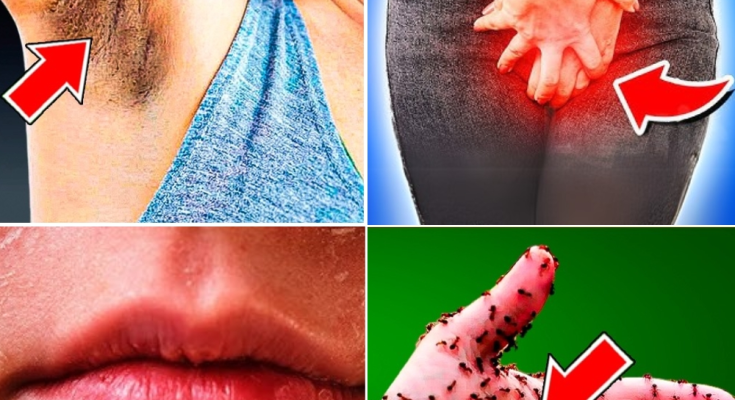Diabetes is often called the “silent killer” for a reason. Many people live for years without realizing they have it. In fact, Type 2 diabetes can creep up slowly, showing subtle symptoms that are easy to ignore or blame on stress, aging, or lifestyle. Catching these early warning signs can make a massive difference in managing or even reversing the condition. Here are 20 signs you might have diabetes without knowing it:
1. Constant Thirst
Feeling thirsty all the time—even after drinking plenty of water—can be a red flag. High blood sugar levels pull fluids from your tissues, making you feel dehydrated.
2. Frequent Urination
Are you running to the bathroom more than usual, especially at night? It could be your body trying to flush out excess sugar through urine.
3. Unexplained Fatigue
Chronic tiredness or feeling drained for no clear reason can be linked to unstable blood sugar levels interfering with your body’s ability to get energy.
4. Sudden Weight Loss
If you’re losing weight without trying, it might be because your body isn’t properly using glucose and starts burning fat and muscle instead.
5. Blurry Vision
Fluctuating sugar levels can swell the lenses in your eyes, causing temporary blurred vision. If left unchecked, diabetes can also lead to long-term eye damage.
6. Slow-Healing Wounds
Cuts and sores that take forever to heal may indicate poor blood circulation and weakened immune response—both linked to diabetes.
7. Tingling or Numbness in Hands and Feet
Known as peripheral neuropathy, this nerve damage is common in diabetes and often begins as a tingling or “pins and needles” feeling.
8. Frequent Infections
Recurring infections—especially skin, gum, bladder, or yeast infections—can suggest elevated sugar levels that support bacterial and fungal growth.
9. Dark Patches on Skin (Acanthosis Nigricans)
Look out for velvety, dark patches around your neck, armpits, or groin. These can be early markers of insulin resistance.
10. Increased Hunger (Even After Eating)
You just ate, but you’re still hungry? That could be because your body isn’t efficiently converting food into energy.
11. Dry Mouth and Itchy Skin
High blood sugar can cause dehydration, leading to a dry mouth and itchy, flaky skin.
12. Frequent Headaches
Recurring headaches may be linked to fluctuating glucose levels, especially if paired with other symptoms.
13. Mood Swings and Irritability
Unstable blood sugar can mess with your mood and make you feel easily agitated or emotional.
14. Poor Sleep or Insomnia
People with diabetes often experience sleep disturbances due to frequent urination, restless legs, or nerve pain.
15. Sexual Dysfunction
Diabetes can damage nerves and blood vessels, leading to reduced libido or erectile dysfunction in both men and women.
16. Sweet-Smelling Breath
A fruity or sweet breath odor might indicate diabetic ketoacidosis—a serious condition where the body burns fat too quickly.
17. Trouble Concentrating
Brain fog or difficulty focusing can result from poorly managed blood sugar levels.
18. Recurrent Yeast Infections
Yeast feeds on glucose. If your blood sugar is high, you’re more prone to fungal infections, especially in moist areas.
19. Vision That Comes and Goes
One day you see fine, the next it’s blurry. This on-and-off vision problem is a typical early sign of blood sugar imbalance.
20. You Have a Family History of Diabetes
Even if you feel fine, having a close relative with diabetes increases your risk significantly. Watch for any of the above signs.
When to See a Doctor
If you’re noticing two or more of these signs, don’t ignore them. A simple blood test can reveal a lot. Early detection gives you more control and options for treatment, including diet, exercise, and lifestyle changes.
Final Thoughts
You don’t need to wait for a diagnosis to take your health seriously. Being aware of these subtle signs empowers you to act early. Whether it’s tweaking your diet, moving more, or getting regular check-ups, small changes today could save you from big problems tomorrow.


